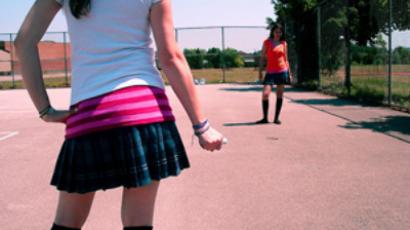Stavropol region: a mecca for mineral water lovers
Water is one of the most precious resources and one that saturates the Russian Caucasus region of Stavropol. In fact, the area is so well known for its H20 that one of its main towns is called “Mineral Water”.
People come from all over just to get a taste.
“I come to drink it because it is good for you. I have come here every summer since I was a kid, never missed a summer,” says Katrina Zabar. “That’s why I am so healthy,” she laughs.
According to legend, the healthy properties of the water were discovered by soldiers who saw that their horses recovered more quickly from injury after drinking from the local springs. Today there are more than 200 varieties of natural mineral waters found there, each with its own properties.
The demand for Stavropol water is high, making it a profitable export. Brands like “Narzan” and “Essentuki” are well known throughout Russia.
“All the water is delivered from the natural mineral springs to our plant. The pipelines are sent from the park right to the production line,” explains bottling manager Yury Kucherov.
The water’s benefits do not just come from drinking it. The region’s springs are also for people to soak in and are credited by doctors for their curative properties.
Some of Russia’s cultural greats have come to the area, including writers Aleksandr Pushkin and Leo Tolstoy.
The abundance of natural therapies available led to the building of a mud hospital especially for the sickly son of Russian Tsar Nicholas II, Prince Aleksey, who was a hemophiliac. Now the hospital, as well as many others, offers quality treatment for osseous, digestive and nervous systems
“All treatments should be indicated to you by your physiologist according to your health conditions individually. Here we can cure the diseases of the spine, all problems with the stomach and digestive system. We can also cure the nervous system and provide balance for your metabolism. This mud is antibacterial, anti-inflammatory and a pain reliever as well,” says Irina Sherbakova, head of the nursing department in one of the oldest mud hospitals in the region.
The region as a whole, and one of its resort cities, Pyatigorsk, provides a range of different activities from mountaineering and hiking to extreme sports, says local professional Gleb Dmitrienko.
For more of some good old fashioned therapy are exercise machines invented more than a century ago.
“I come here every day and I really like it. It seems to me that I have become slimmer. It gives me health, energy and youth,” says Svetlana Larina. “These machines are so unusual, I am not going to the modern gym in Moscow because there the training machines are difficult for me, and here they are so simple and effective. I don’t know how I am going to live without it.”
Though the area has been known to Russians for centuries as a health retreat, it is only just starting to get the attention of health seekers from around the world.
The region’s competitive advantage is the price of spa and medical services.
“People come here not just because of great service. They come here because it’s not that expensive. You get the same service and treatment as you would in Europe, but for less money,” says head of a local spa resort Vladislav Tsapko.
“This land is a melting pot of cultures and traditions of Russian people living here and people of the North Caucasian republics…We are one people,” said Tatyana Kara-Kazaryan from Pyatigorsk Linguistic State University.













